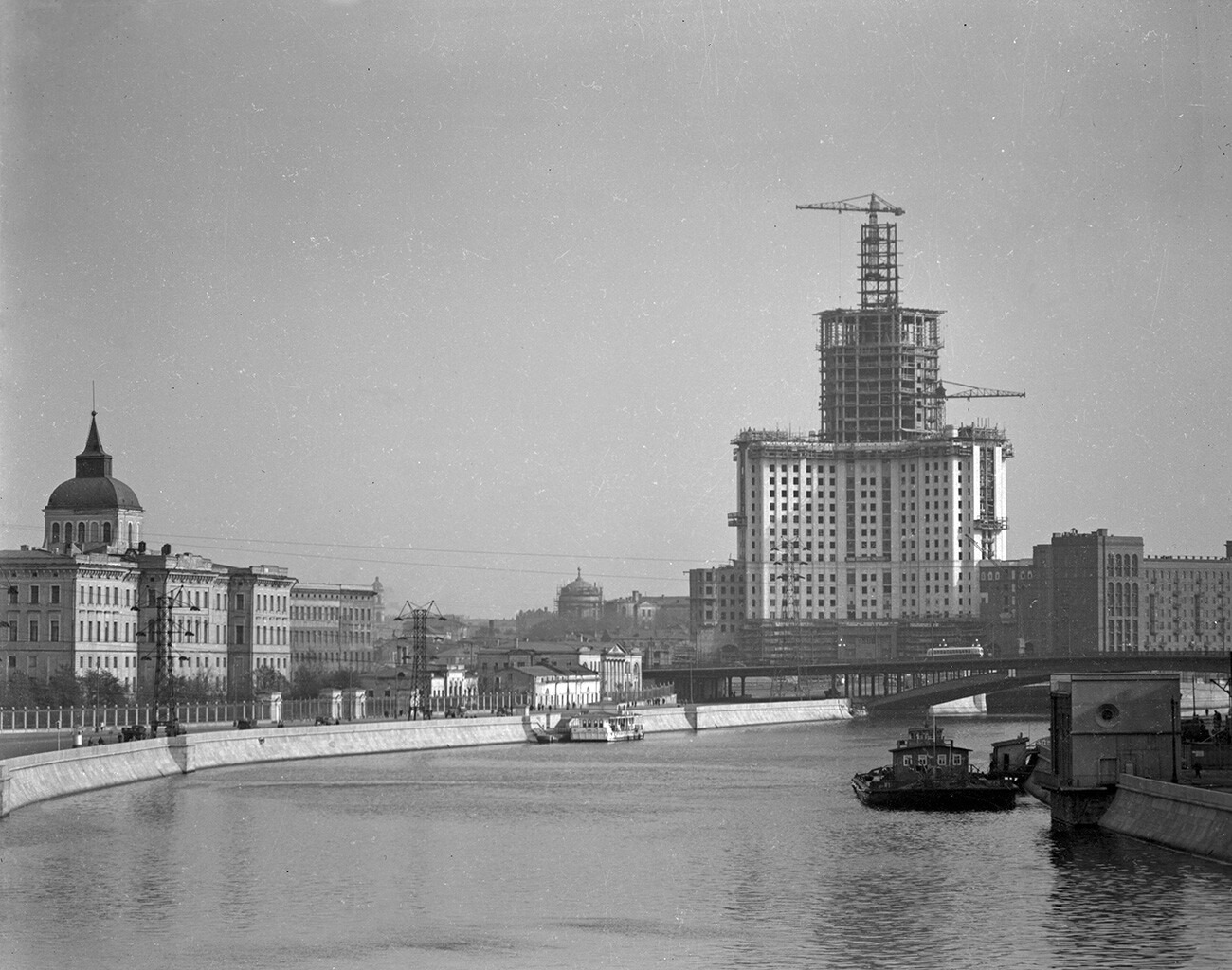What Moscow looked like in the 1940s (PHOTOS)

The 1940s began peacefully. There were many parades and demonstrations being held on the Red Square.

And the House of Unions hosted the New Year party ushering in the new decade.
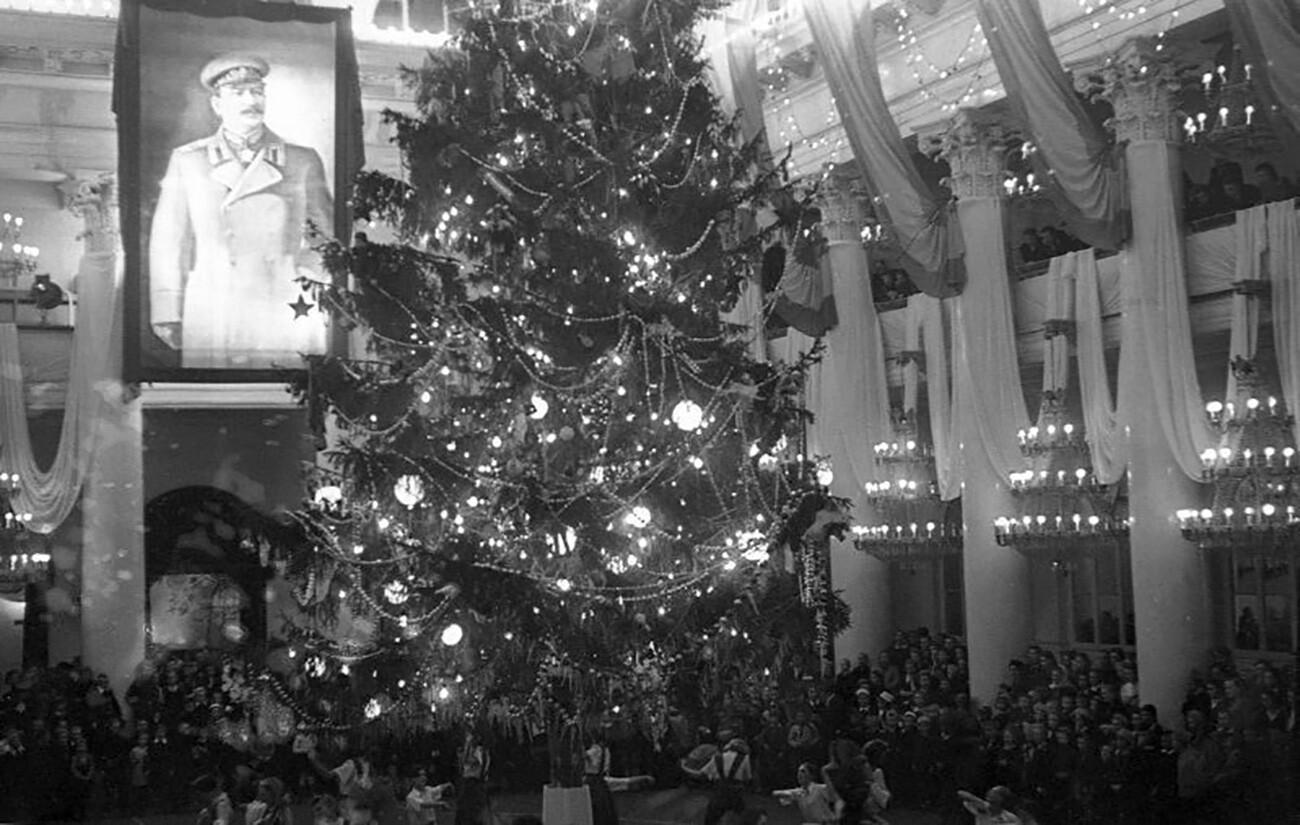
Visitors looked with interest at the All-Union Agricultural Exhibition, which opened in 1939 (now VDNKh Park), where pavilions of all the Soviet Union’s republics were on display.

And the main attraction of the exhibition was, of course, the monumental sculpture ‘Worker and Kolkhoz Woman’ by Vera Mukhina.

Stalin’s plan for the general reconstruction of Moscow was completed and wide avenues and streets were now in full operation.
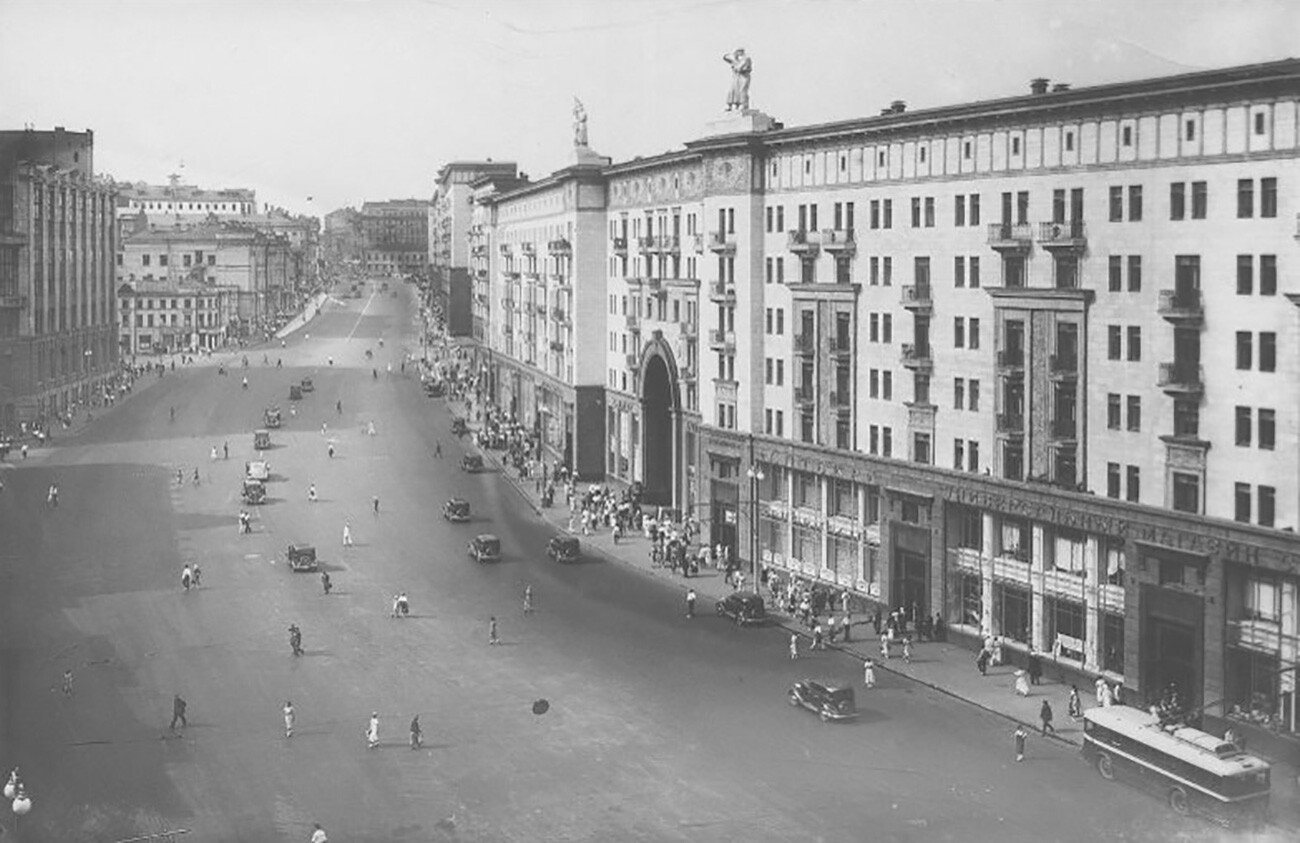
Motorists enjoyed the newly built Krymsky (Crimean) bridge over the Moskva River.
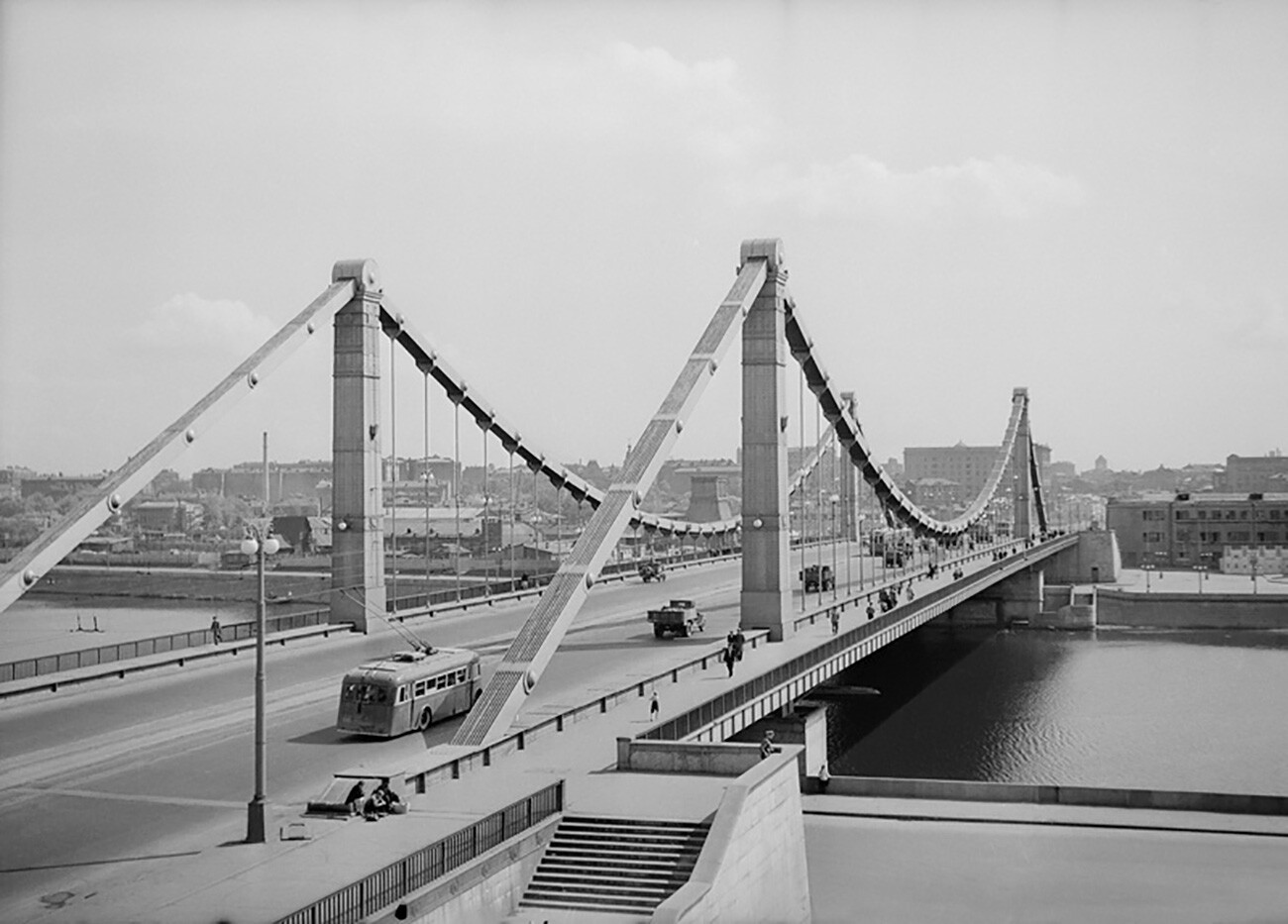
Muscovites went to the movies and stores, dressed nicely and enjoyed life.

And, of course, the rapidly expanding Moscow Metro was the capital’s new attraction.
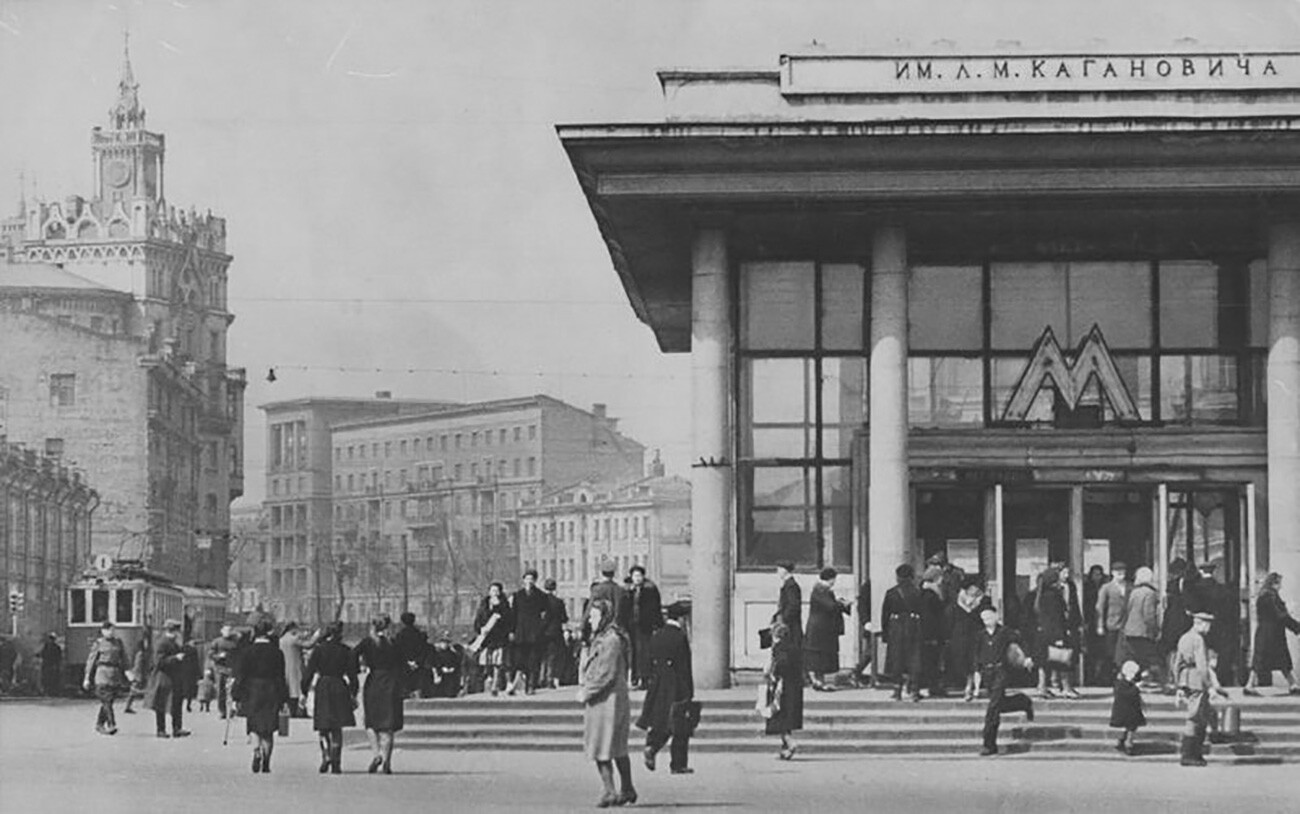
The announcement of the Nazis invasion and start of the war was received with great anxiety.

The city landscape changed unrecognizably. Tires and anti-tank hedgehogs were installed across the city.
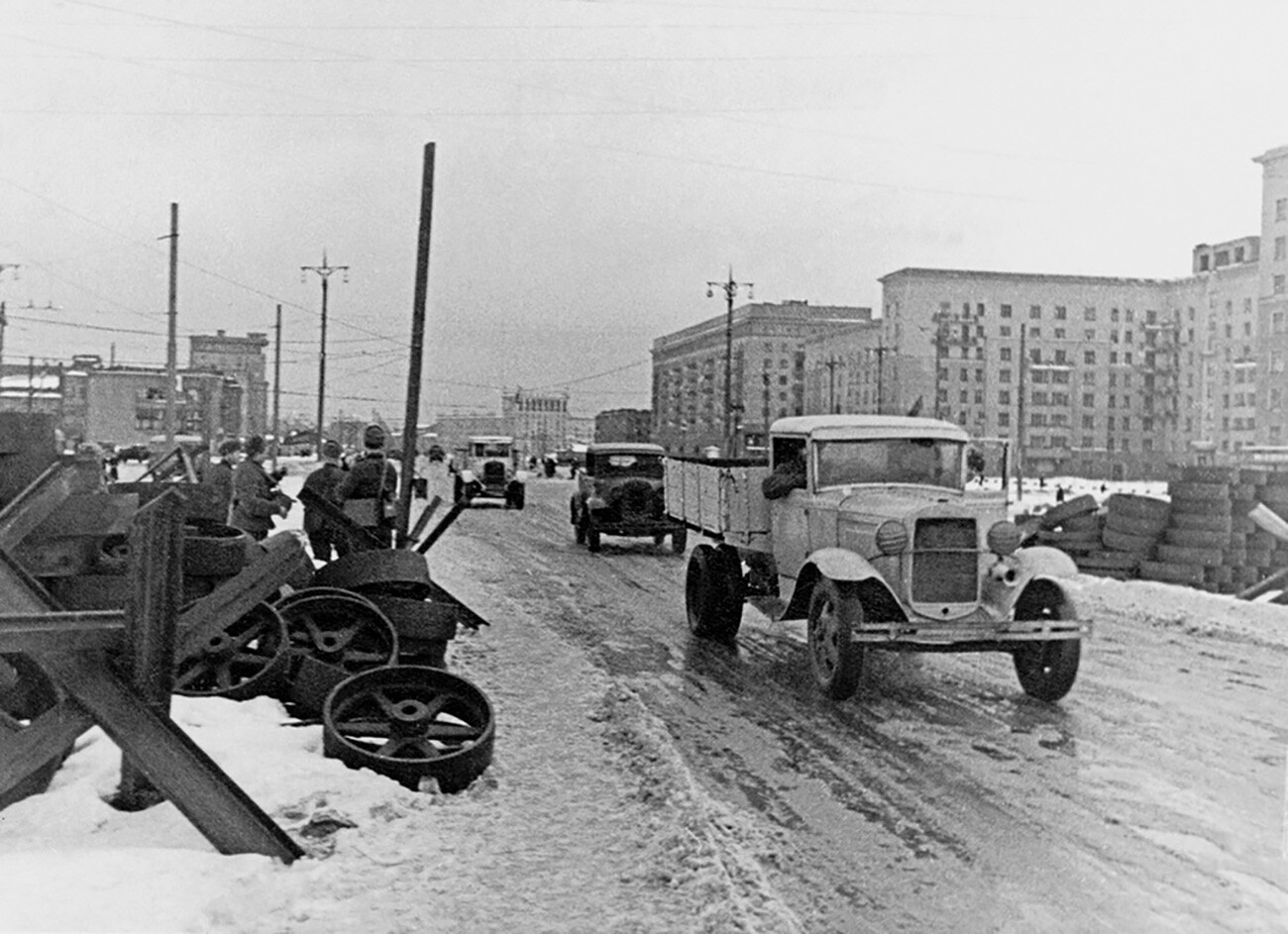
Store windows were covered with sandbags to shield them from bombing.

One could see huge aerostats, masking the view of the enemy aviation.
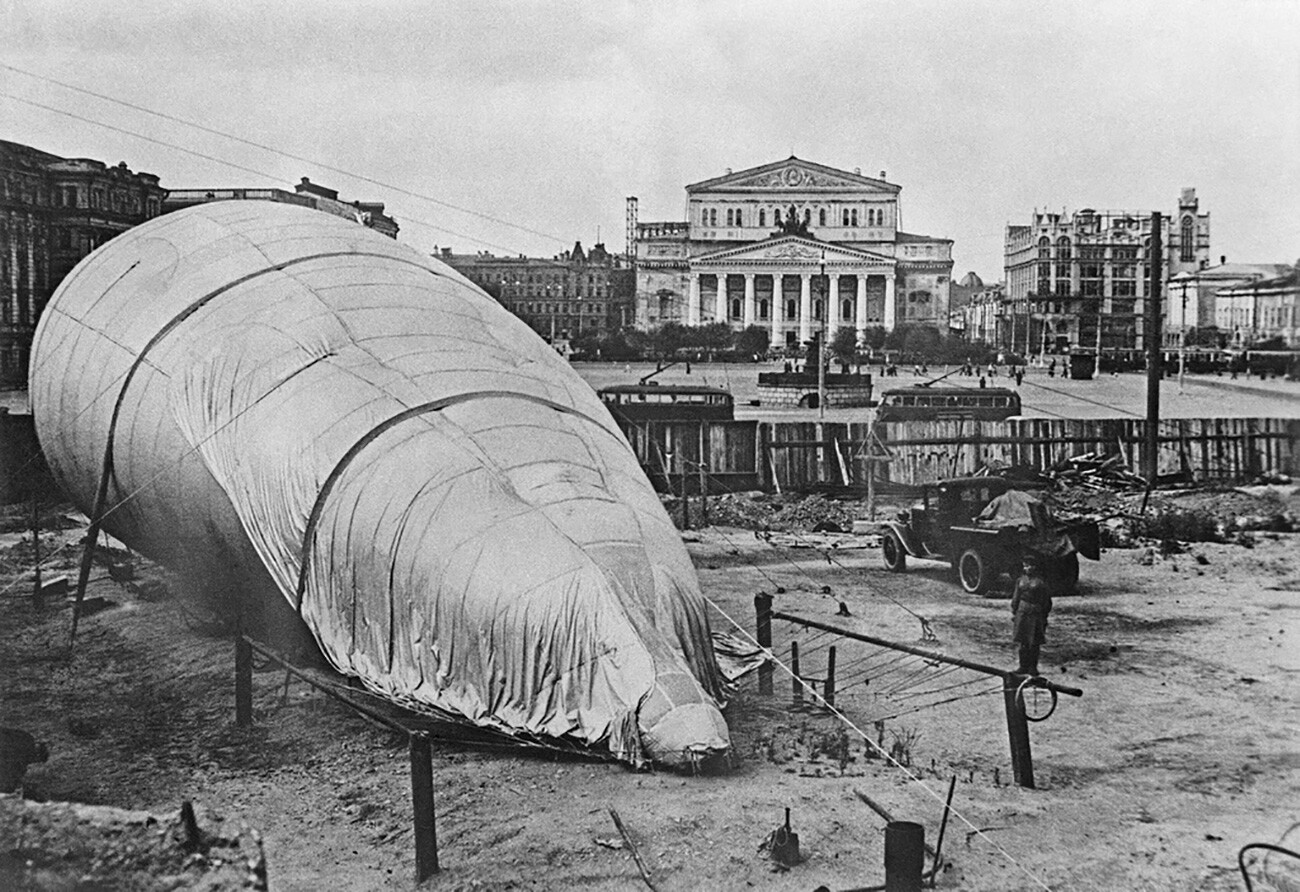
The anti-aircraft gunners stood up on roofs to defend Moscow’s sky.
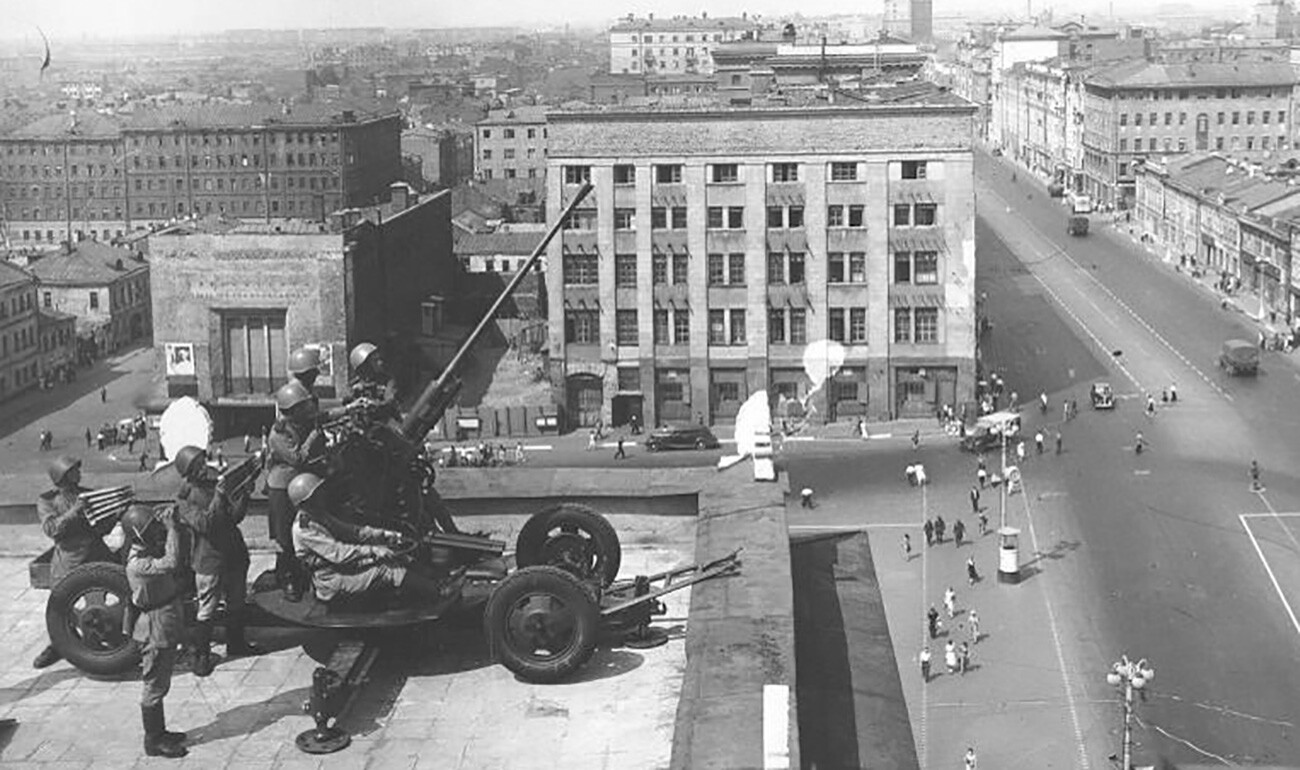
Right from the parade marking the anniversary of the 1917 Bolshevik Revolution, columns of soldiers marched to the front. They headed up to defend Moscow, on the western outskirts of which fierce battles had already been fought during the Winter of 1941.
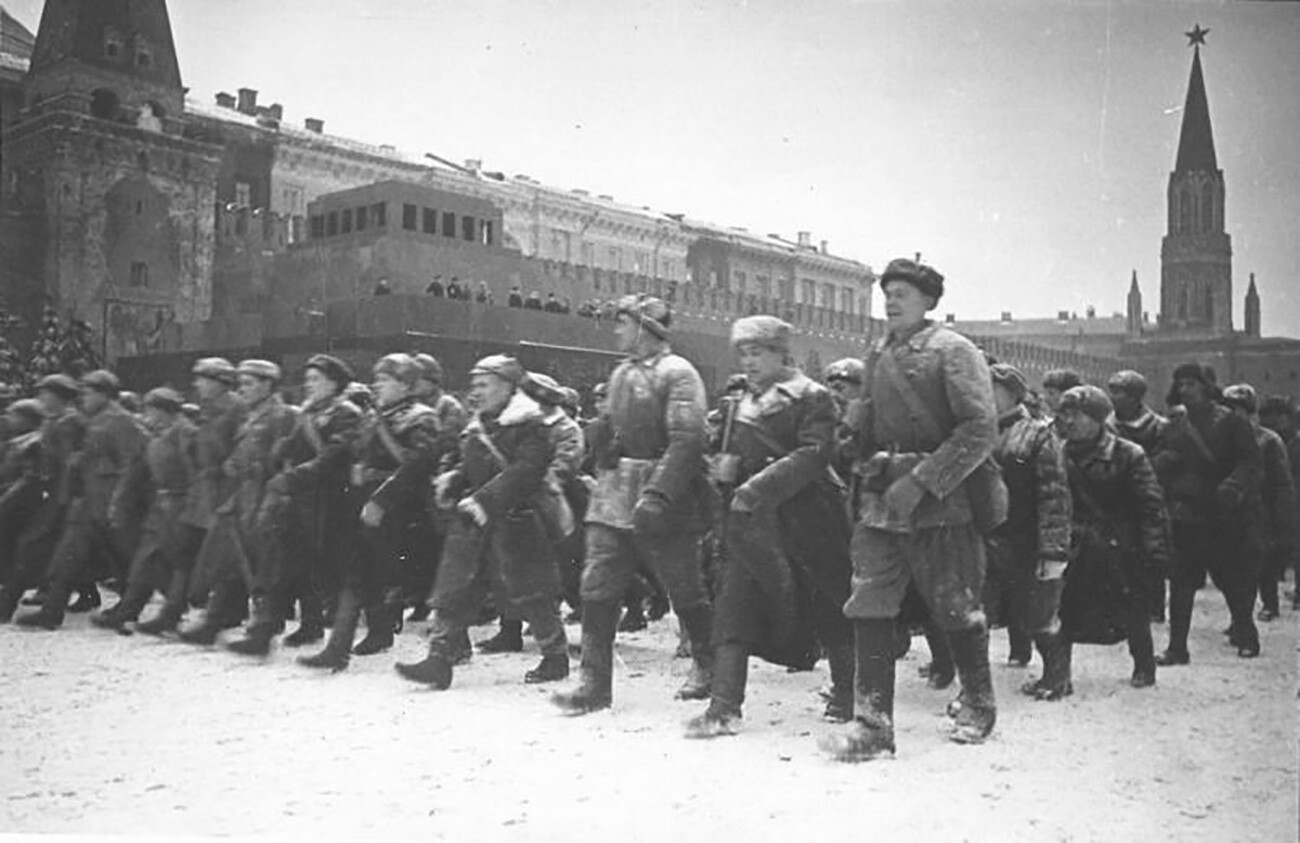
The Moscow Zoo continued to operate, despite being bombed in the early days of the war.

Many of the animals were evacuated, but some remained and were cared for by the staff.
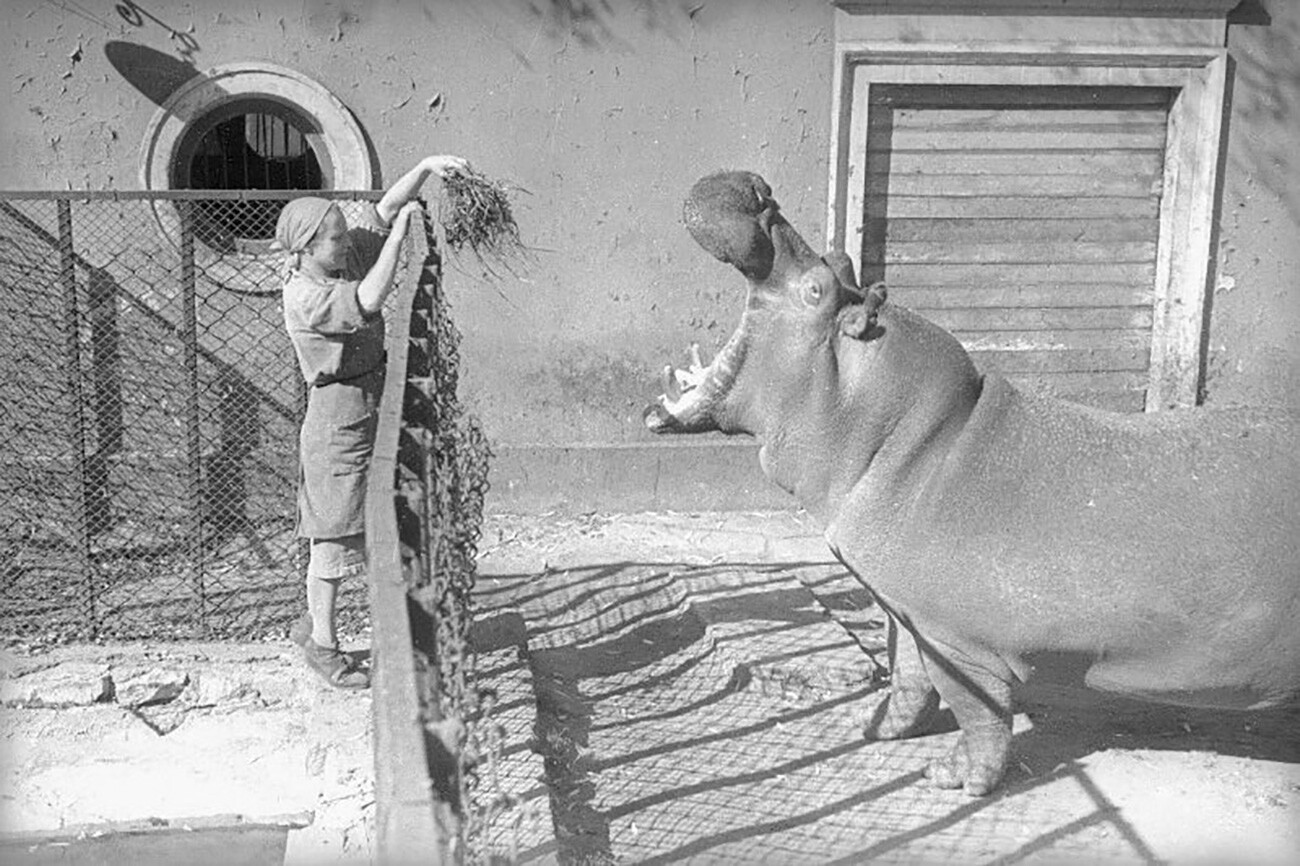
The subway turned into a bomb shelter. The photo below shows people sleeping at the Mayakovskaya station.
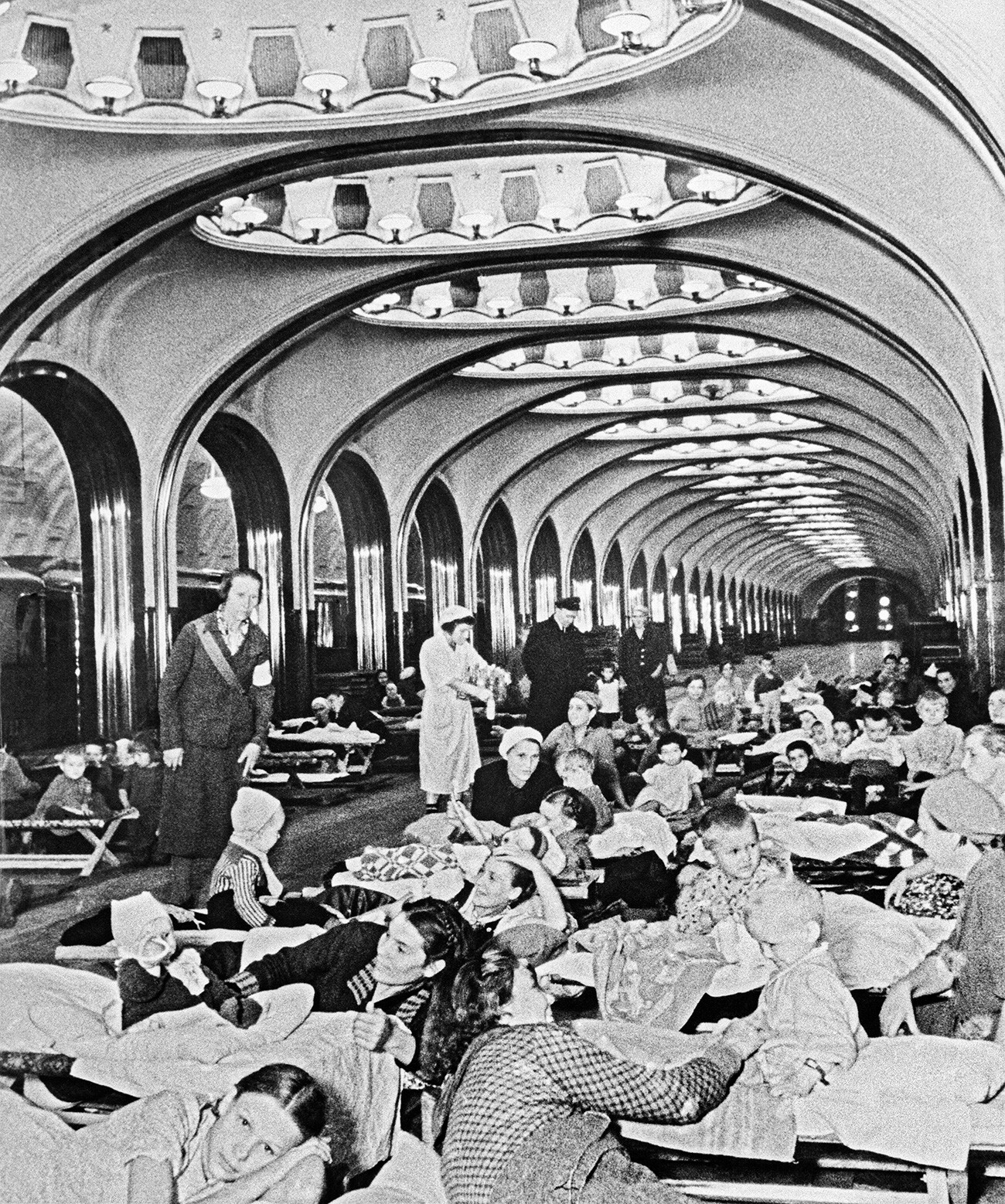
And, on Mayakovsky Square, gas masks were handed out to passersby.
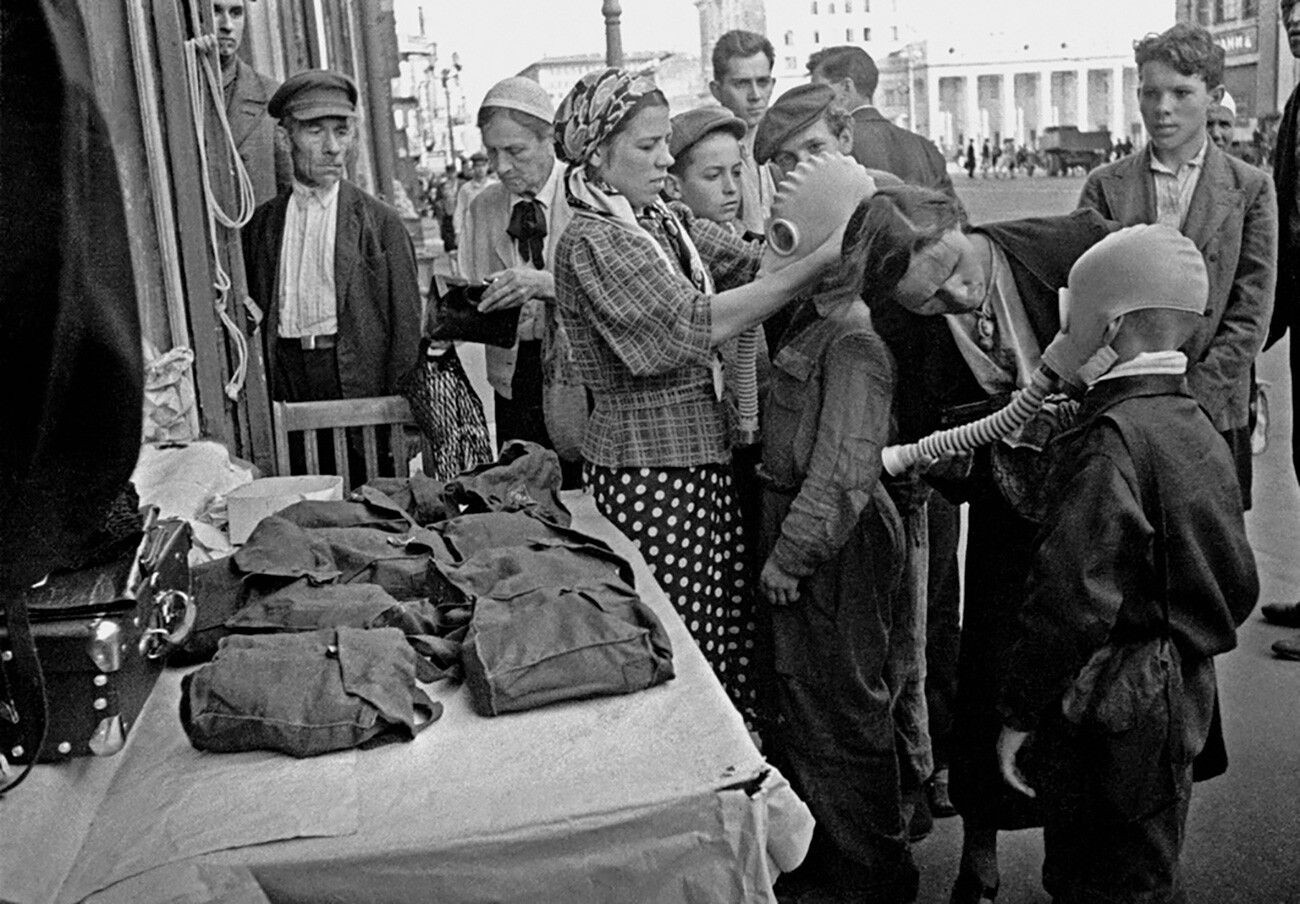
On July 17, 1944, more than 57,000 German prisoners of war were convoyed in columns through Moscow streets within the ‘March of the Defeated’. Although Muscovites shouted “Death to Hitler,” in general, they didn’t show aggression toward these tired and tattered prisoners. After the “march”, the Germans were sent to camps.
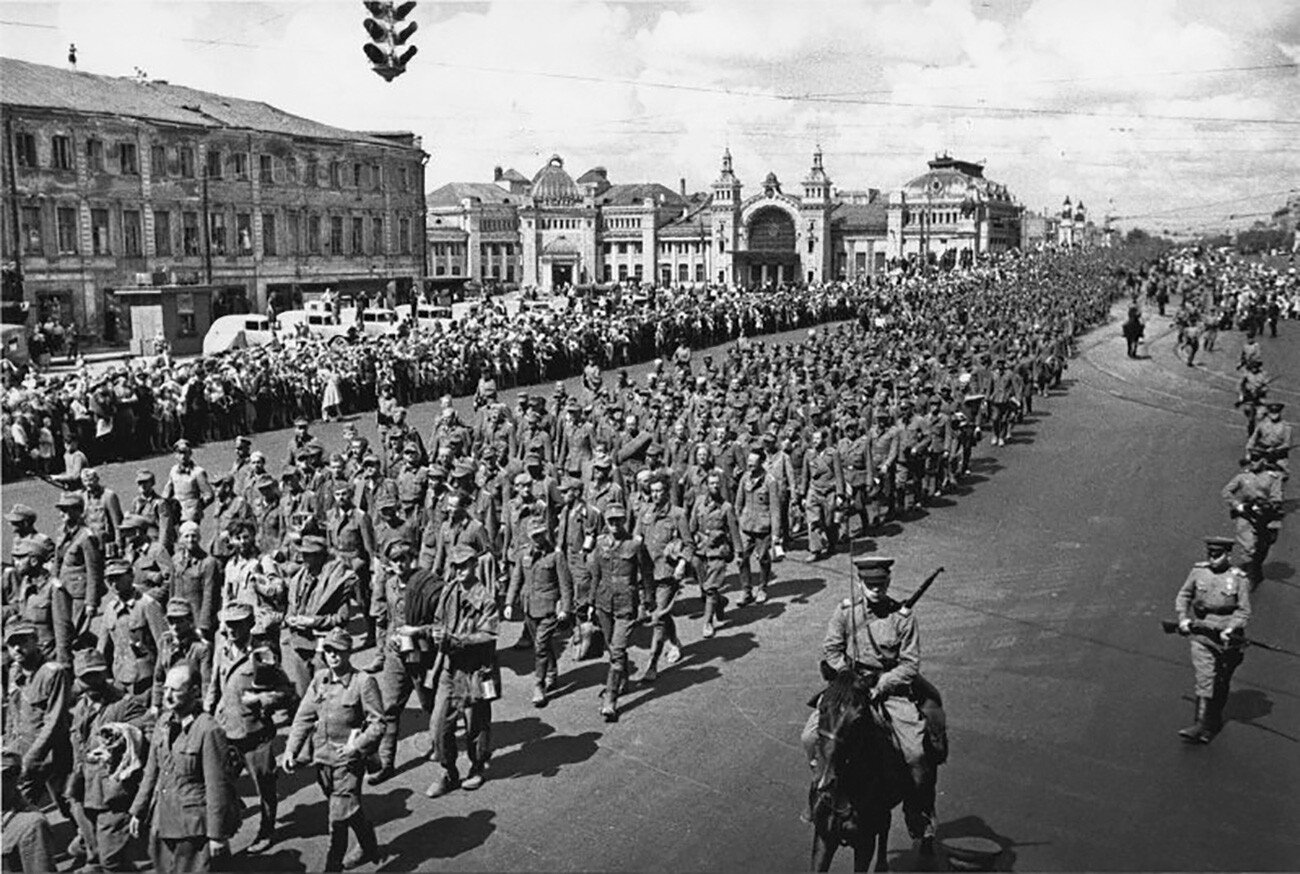
On May 9, 1945, Moscow celebrated the long-awaited victory with a large-scale salute.
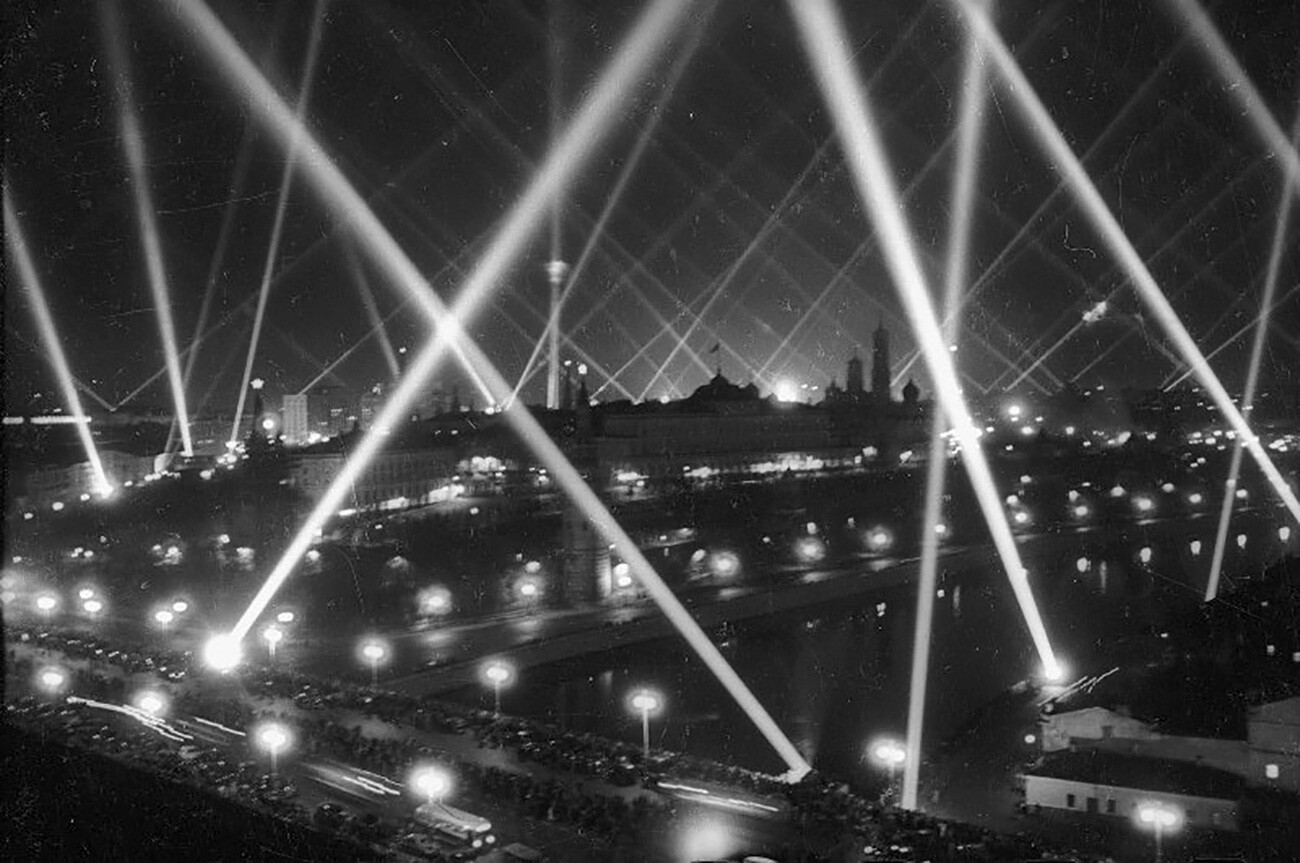
Muscovites joyfully welcomed their heroes and defenders with flowers right at the railway stations.

On June 24, 1945, the first, legendary Victory Parade was held on the Red Square.
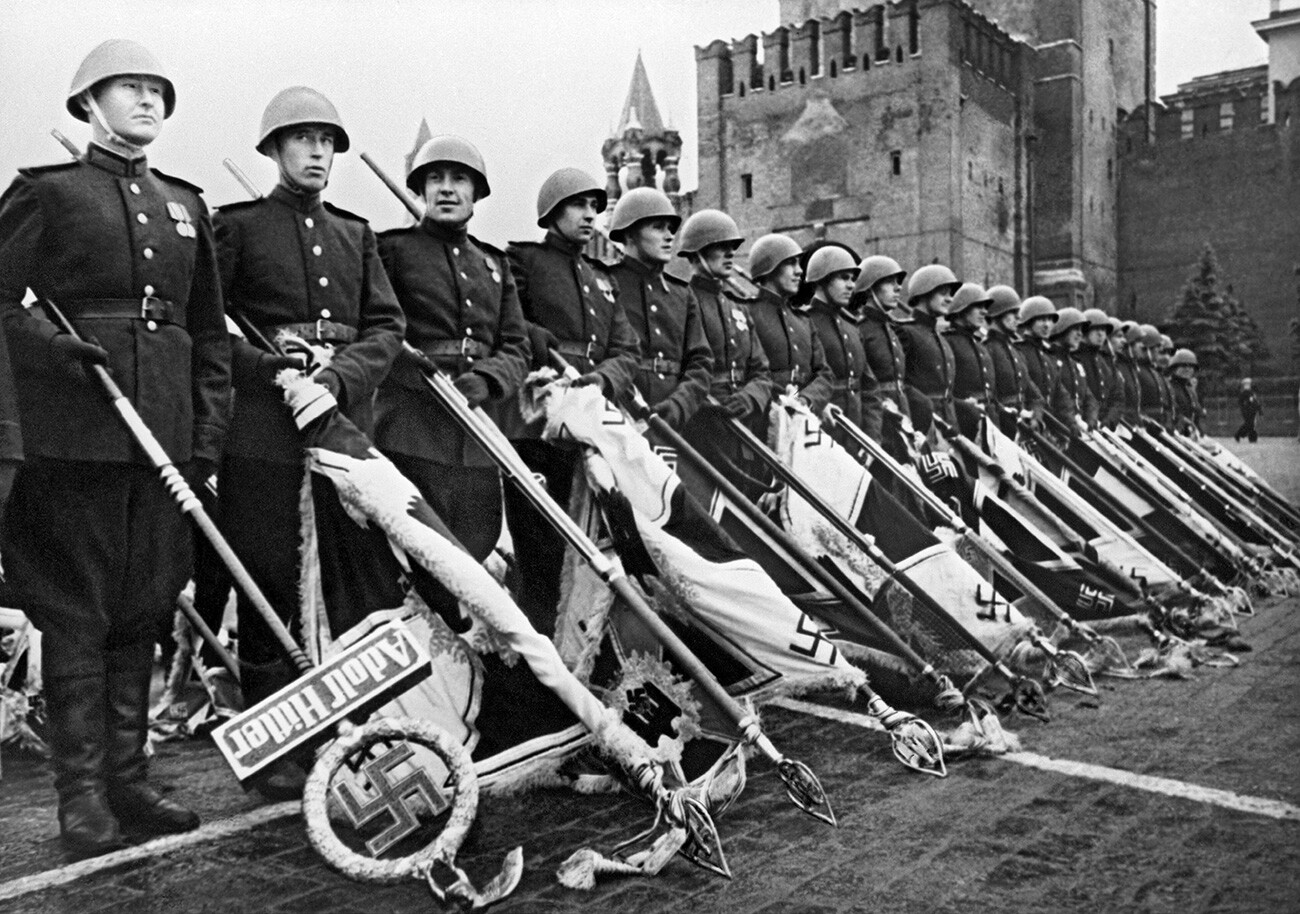
In September 1947, meanwhile, Moscow celebrated its 800th anniversary on a grand scale.

On the occasion of the city’s birthday, there was also a large-scale athletic parade.
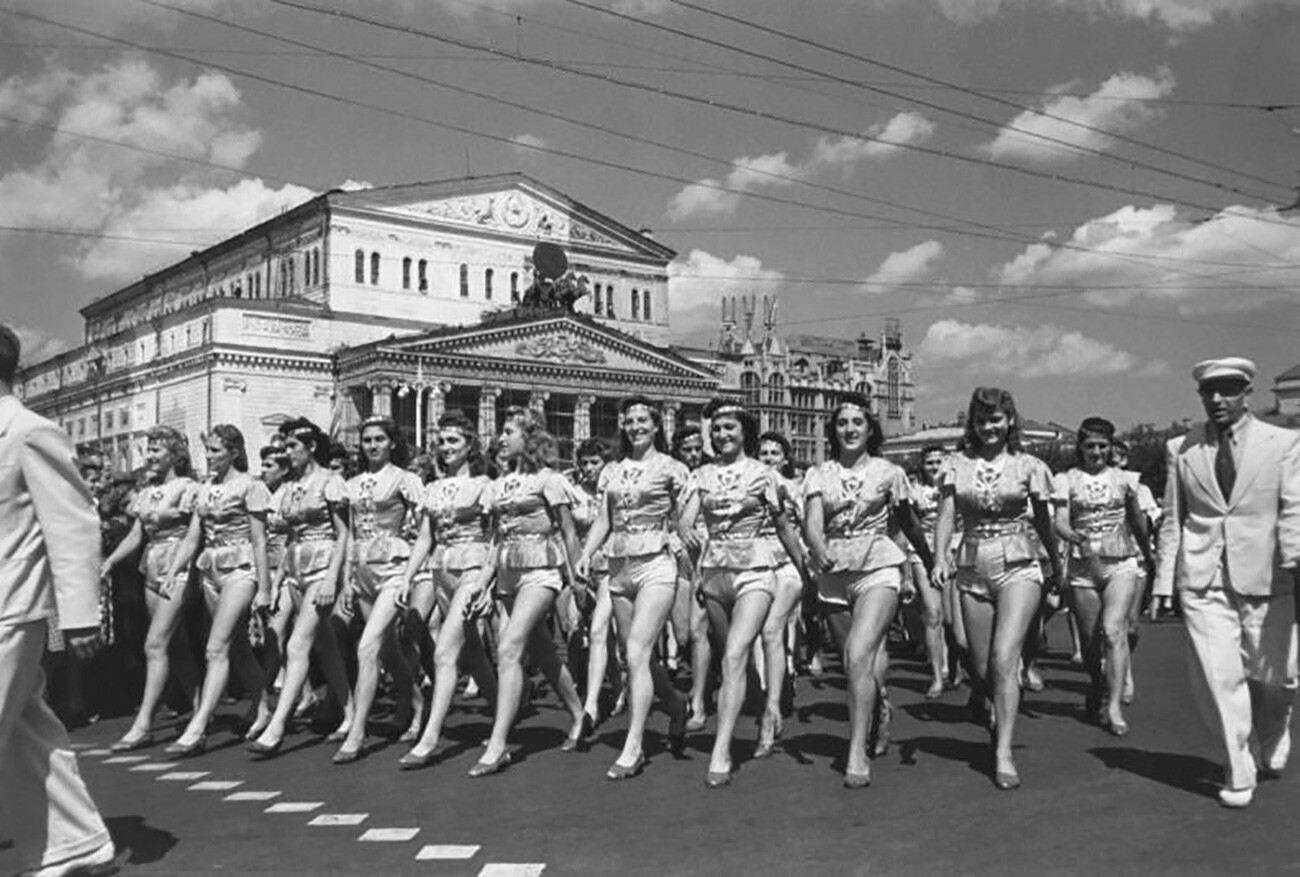
The city was pompously lit up and decorated, crowds of people took part in the festivities and, of course, watched the fireworks in the evening.
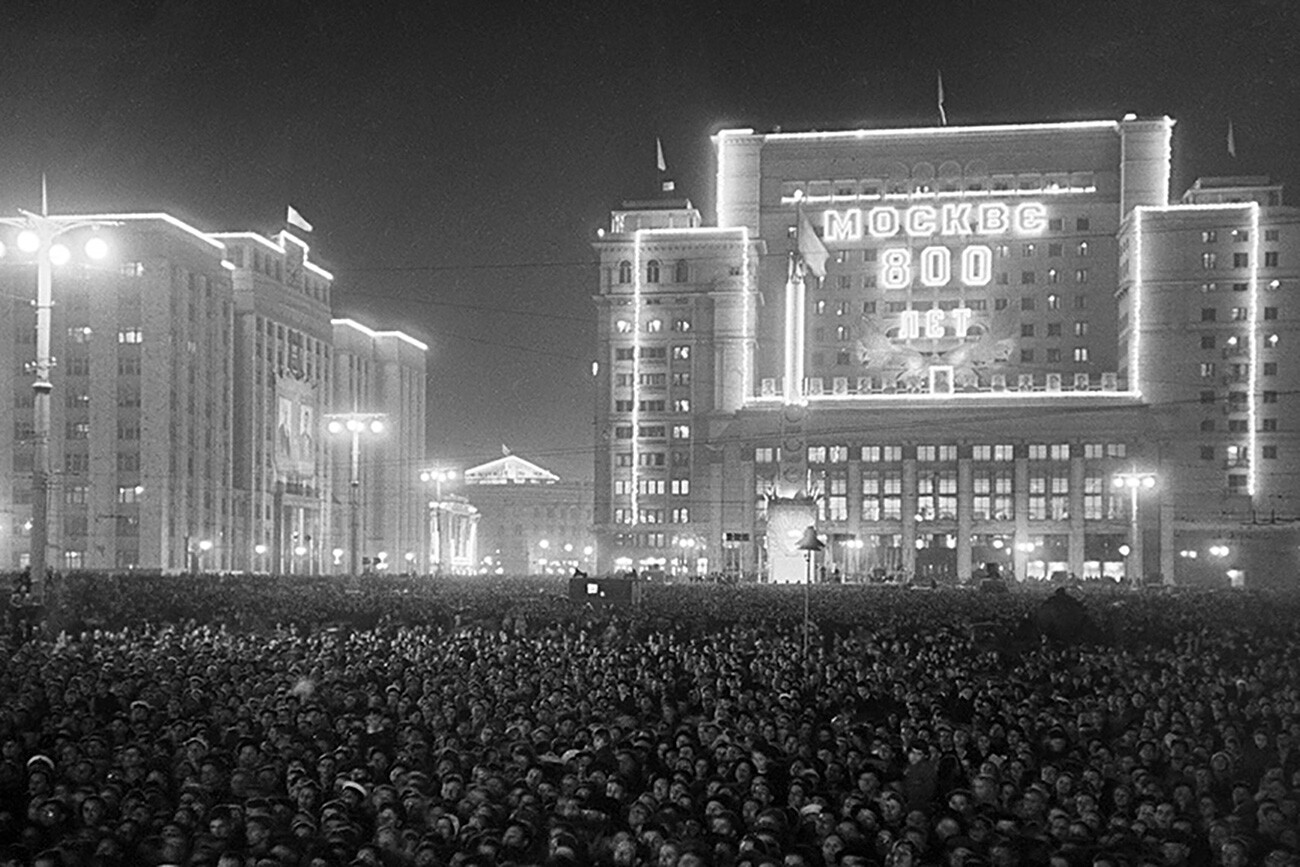
Moscow returned to peaceful life. People kept visiting their favorite circus on Tsvetnoy Boulevard with their kids…

Or riding the city’s park slides…
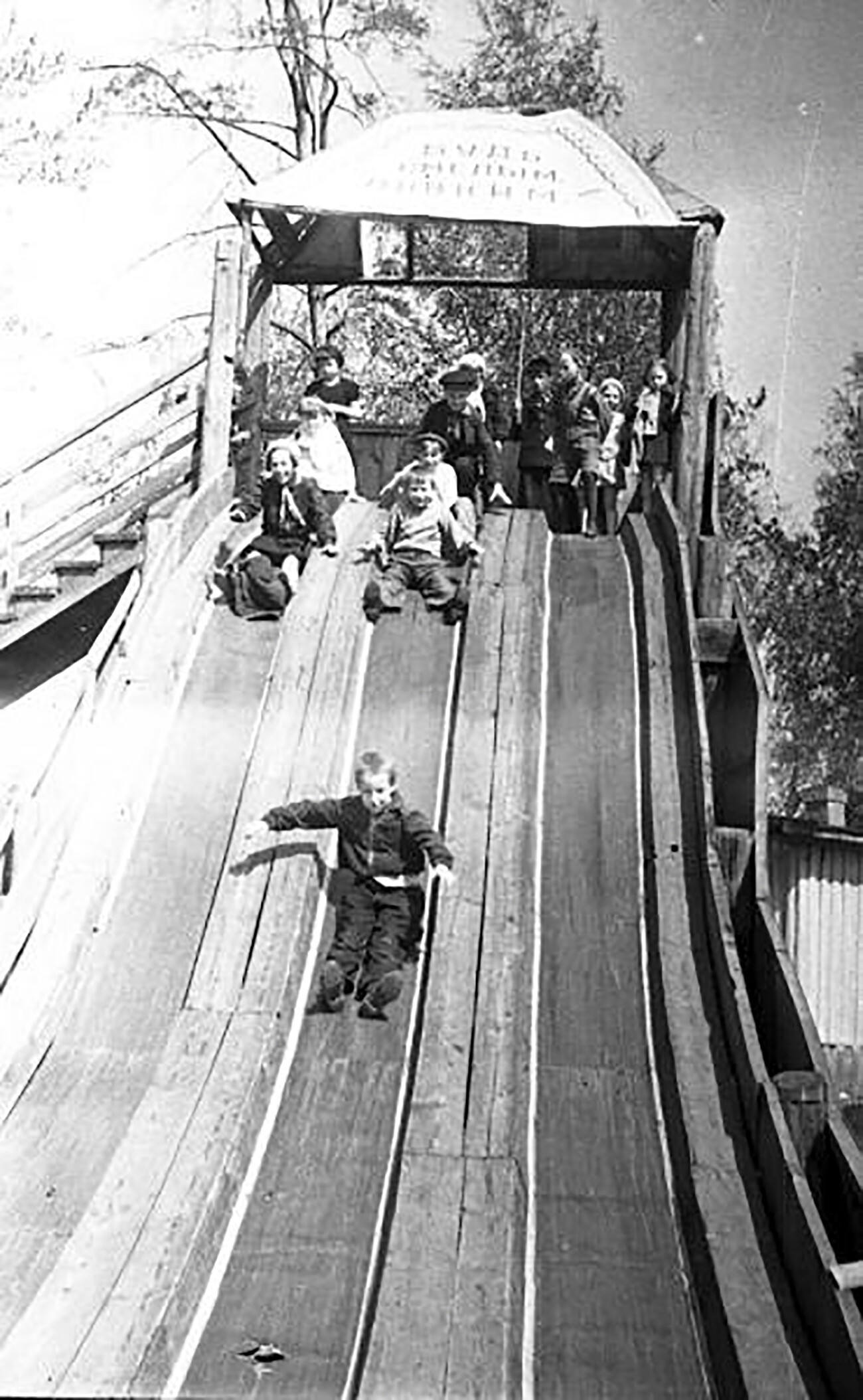
Or watching soccer at the biggest Stadium, ‘Dynamo’.
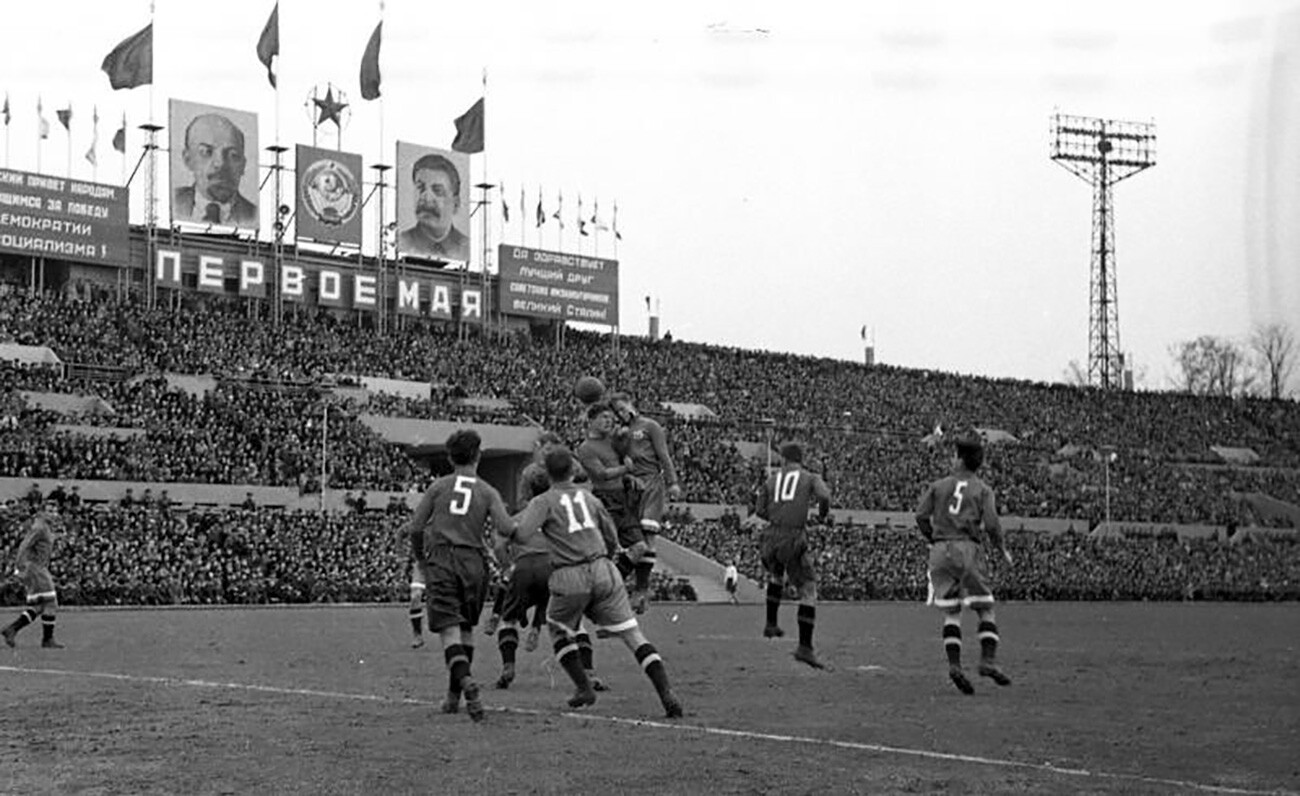
High-rise construction also began in Moscow.
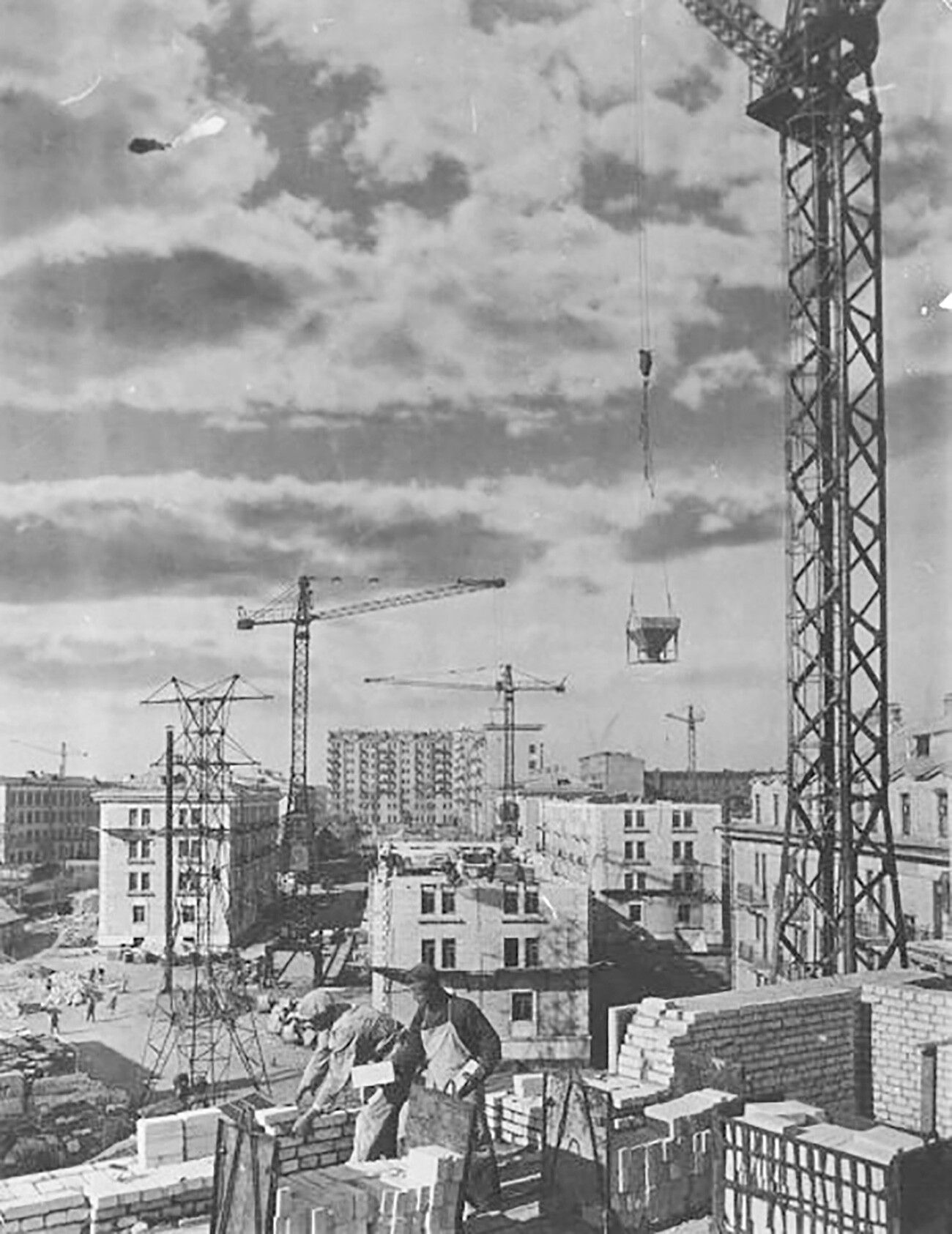
And the outlines of the first Stalinist skyscrapers appeared.
